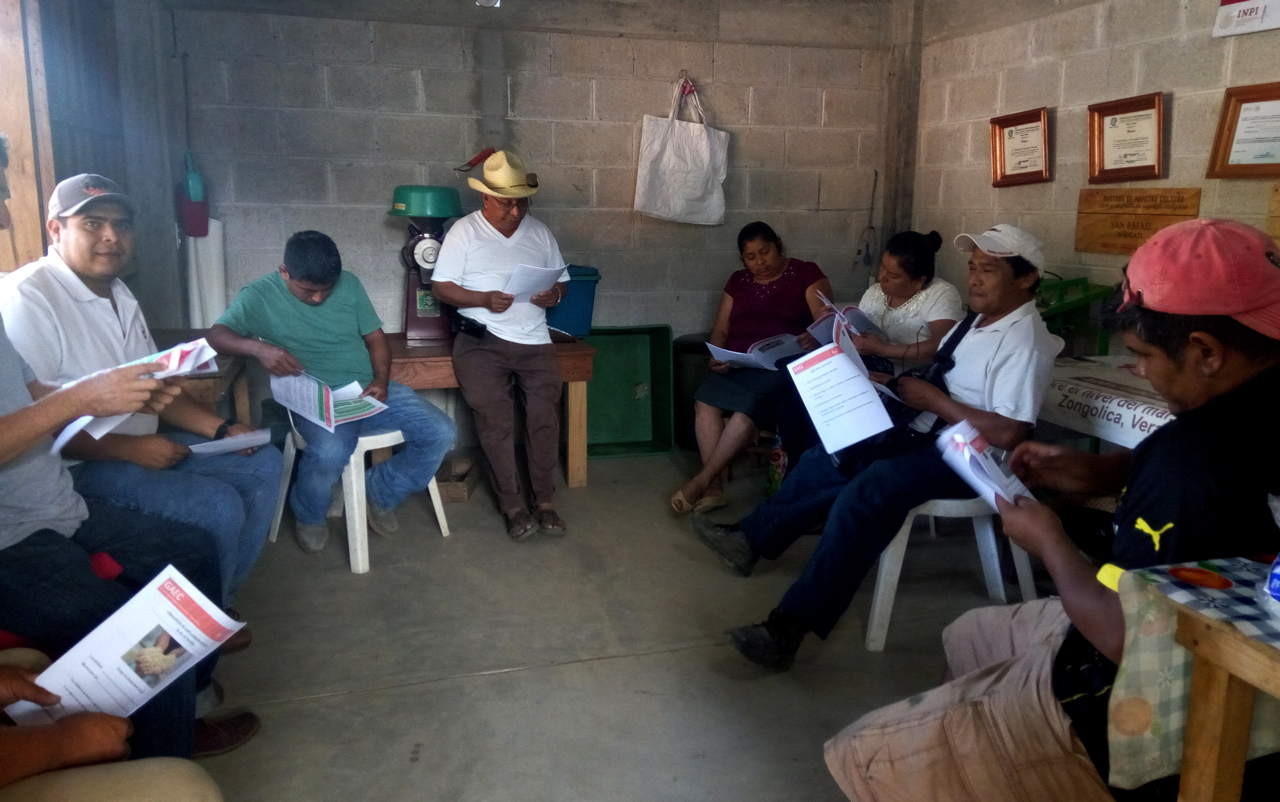Training for coffee producers in safety and health for their care and that of their families
Zongolica, Ver.- In the period from October to March 2019, training for coffee producers were carried out on four topics: nutrition of the coffee plantation, harvest with quality and health, prevention of risks in the coffee plantation and care of the coffee plantation. In total, 300 coffee growers from Tezonapa and Zongolica, in Veracruz, have attended the sessions. Technical content for each stage of coffee production is accompanied by an awareness content of the risks to which producers and their families are exposed at each stage.
The objective of these trainings is to promote self-management of safety and health in coffee farms, by following these recommendations and good practices for managing the plots, producers can have an improvement in productivity in their coffee plantation. The incursion into the cultivation of new varieties, climatic variations, management practices can reduce the final quality of the coffee.
The comments received from the producers have been positive, they consider that the information provided brings them a benefit for the improvement of their crop, the care of their safety and health, as well as that of their families. In the training, the producers have mentioned cases of diseases in people that could be attributed to the use of agrochemicals, including the death of people. For this reason, they consider that the training has contributed to raising awareness of the importance of identifying the risks they are exposed to and they learn how to reduce the risk of accidents and repercussions on their health.
Likewise, producers discuss activities that represent a high degree of danger for the development of girls, boys and adolescents and thus the risks of child labor becomes an issue they are can talk about. From the perspective of the training work associated with the intergenerational inheritance of coffee cultivation, the producers have become aware that this family situation must also consider the guarantee of the rights of their sons and daughters with respect to their educational training, recreation, food and health.
The trainings work in partnership with guide producers, who the Campos de Esperanza program has identified as committed producers who carry out the convening work in their communities and follow up on the agreements of the sessions.
Once the harvest is finished, the training will be oriented to the management of the plots. The project will work with communities to establish a rapid response safety and health committee to deal with accidents at the community level.

